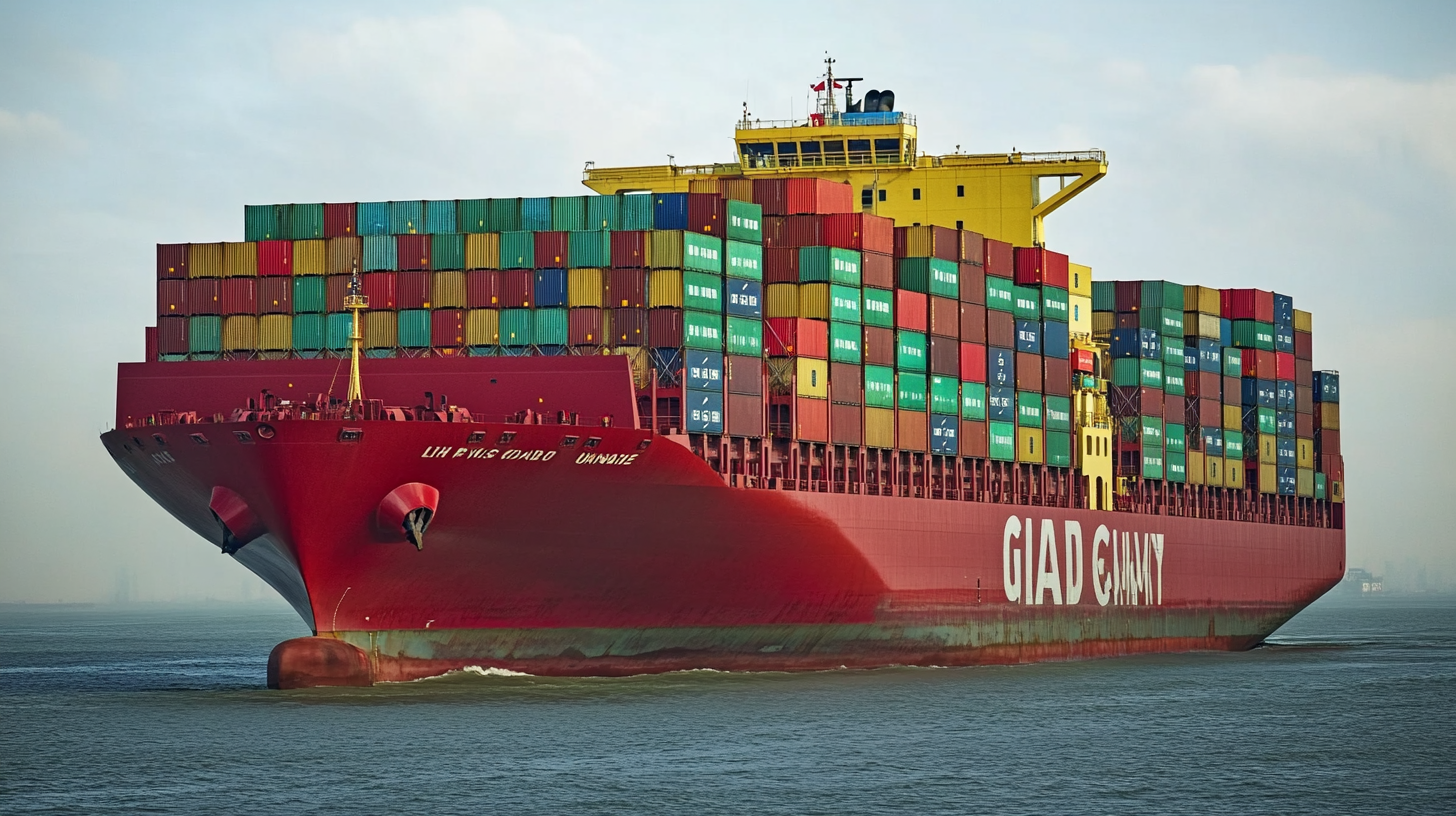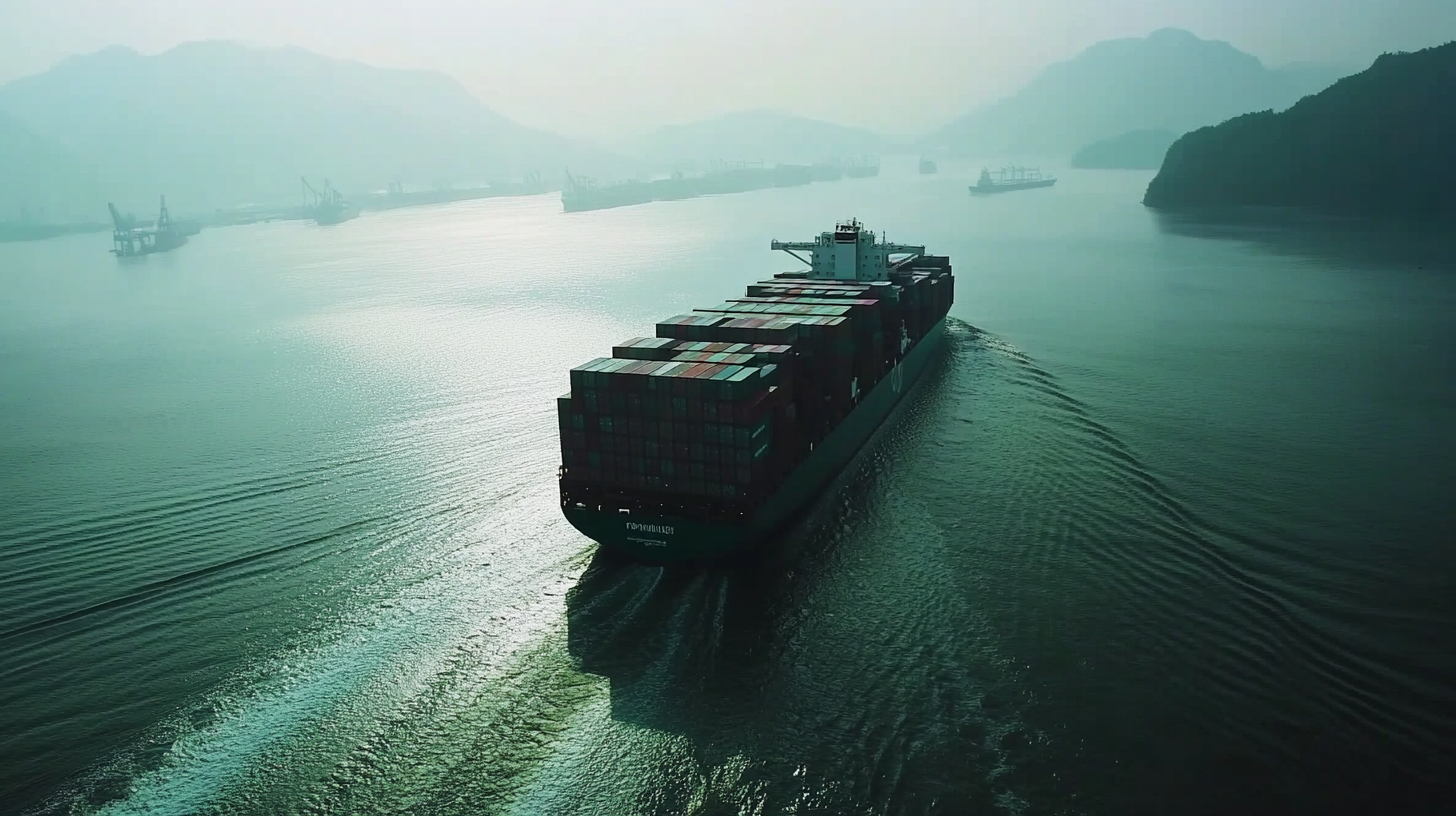As global trade continues to expand, reaching an estimated value of $29 trillion by 2023 according to the World Trade Organization, the importance of efficient logistics solutions cannot be overstated. Cargo Forwarding Services play a pivotal role in this ecosystem, offering businesses the ability to navigate the complexities of international shipping with ease. In fact, the International Air Transport Association (IATA) reported that air cargo transportation is expected to grow by 4.1% annually, underscoring the need for robust forwarding services that enhance operational efficiency. With China being a crucial hub in the global supply chain, the demand for unmatched cargo forwarding solutions has surged, enabling companies to streamline their logistics processes and reduce transit times. In this blog, we will explore the innovative strategies and technology-driven approaches that are revolutionizing cargo forwarding services from China, ensuring that businesses are equipped to thrive in the ever-evolving global market.

Cargo forwarding is a vital component of global trade, facilitating the smooth movement of goods across borders. Recent market insights indicate that the global freight forwarding market is anticipated to reach approximately $200 billion by 2027, driven by the escalating demand for efficient shipping solutions. A report by Mordor Intelligence reveals that the Asia-Pacific region, particularly China, has become the dominant player in cargo forwarding, accounting for over 35% of total market share. This dominance is attributed to robust manufacturing capabilities and a vast export orientation.
To maximize efficiency in cargo forwarding, businesses should consider implementing digital solutions. According to a study by Deloitte, companies that leverage technology in their supply chains can reduce costs by up to 15% while enhancing transparency and traceability of shipments. Moreover, businesses should engage with freight forwarders that offer integrated services, including customs brokerage, as this can significantly decrease transit time and lead to smoother operations.
It's also crucial for exporters to be aware of fluctuating shipping rates. The freight market has seen a significant rise in costs due to recent supply chain disruptions, with Bloomberg reporting a 300% increase in container shipping rates during peak crises. Tools like rate calculators and trend analysis platforms can help businesses remain agile and make informed decisions regarding their shipping strategies.

The global trade landscape is evolving rapidly, with cargo forwarding from China at the forefront of this transformation. As businesses strive to expand their reach, they increasingly rely on efficient logistics solutions that can manage the complexities of international shipping. Key trends impacting this demand include digitalization, which streamlines operations and improves visibility throughout the supply chain. Moreover, the rise of e-commerce has created an urgent need for faster and more reliable shipping options, prompting logistics providers to enhance their service offerings and adapt to changing consumer expectations.
Sustainability is another critical factor shaping cargo forwarding services. As environmental concerns become more prevalent, companies are seeking eco-friendly solutions to minimize their carbon footprint. This shift has led to innovations such as the use of alternative fuels and optimized routing to reduce emissions. Additionally, regulatory changes across various countries necessitate adaptable logistics strategies that can accommodate new trade agreements and tariffs. As a result, forwarders must stay agile and proactive, ensuring their services not only meet current demands but also anticipate future challenges in the dynamic world of global trade.
In the rapidly evolving landscape of global trade, innovative technology has become a cornerstone of cargo forwarding solutions, particularly in China. With advancements in automation, data analytics, and real-time tracking, businesses can now enhance the efficiency and reliability of their shipping processes. The integration of these technologies allows for streamlined operations, reduced errors, and improved customer satisfaction, ultimately elevating the global trade experience.
Tip: Embrace automation tools to minimize manual tasks in your cargo forwarding operations. This not only saves time but also reduces the likelihood of human error, allowing your team to focus on more strategic initiatives.
As companies strive to stay competitive, leveraging cutting-edge technologies such as Artificial Intelligence and blockchain can further revolutionize cargo forwarding. These solutions provide enhanced visibility across the supply chain, ensuring that all stakeholders are informed and engaged throughout the shipping process. By adopting such innovative practices, businesses can better respond to market demands and optimize their logistical strategies.
Tip: Regularly update your technology and software systems to keep up with industry advancements. Staying current ensures your operations remain efficient and can adapt to changing regulations and customer expectations.

Navigating the complex landscape of international shipping requires a keen understanding of the regulatory environment. Compliance challenges abound, as countries implement differing trade laws, tariffs, and customs regulations. According to the World Trade Organization (WTO), nearly 60% of companies in the cargo forwarding industry report difficulties in understanding and adhering to multi-jurisdictional regulations. This can lead to delays, fines, and even the seizure of goods.
**Tip:** Invest in comprehensive training for your team focused on international compliance and regulatory updates. Keeping abreast of the latest changes can save your business time and prevent costly errors.
Moreover, the rise of e-commerce has added another layer of complexity to cargo forwarding. With the increase in cross-border shipments, strict customs compliance is essential to avoid disruptions. A report from the International Air Transport Association (IATA) indicates that compliance costs can reach up to 10% of the total shipping expense. This necessitates a proactive approach to understanding local laws and maintaining accurate documentation.
**Tip:** Utilize technology solutions to automate documentation. Tools like electronic data interchange (EDI) can streamline regulatory processes and reduce the risk of human error.
In the rapidly evolving landscape of global trade, sustainability is becoming a pivotal concern for cargo forwarding companies. The integration of eco-friendly practices not only enhances operational efficiency but also addresses the urgent need for environmental responsibility. Companies are increasingly exploring alternatives to traditional shipping methods, such as utilizing electric-powered vehicles and optimizing supply chain routes to reduce fuel consumption. By adopting these measures, businesses can significantly lower their carbon footprint while maintaining the reliability and speed that international trade demands.
Moreover, collaboration between cargo forwarders and shippers is essential in fostering sustainable practices. Implementing transparent tracking systems allows for real-time monitoring of emissions and resource usage, enabling companies to identify areas for improvement. Eco-friendly packaging solutions, such as biodegradable materials and reusable containers, are also gaining traction, contributing further to environmental sustainability. As the demand for responsible logistics grows, companies that prioritize green initiatives not only meet consumer expectations but also create a competitive edge in the market. By embracing these innovative approaches, the cargo forwarding industry can drive meaningful change in global trade and pave the way for a more sustainable future.
| Aspect | Description | Benefits | Eco-Friendly Practices |
|---|---|---|---|
| Cargo Forwarding Solutions | Comprehensive services for transporting goods globally. | Increased efficiency and reduced delivery times. | Utilizing sustainable transportation methods. |
| Sustainability Measures | Practices aimed at reducing carbon footprint. | Better compliance with international regulations. | Use of electric vehicles and fuel-efficient modes. |
| Innovation in Logistics | Adoption of advanced technologies like IoT. | Enhanced tracking and monitoring of shipments. | Smart warehouses designed to optimize energy use. |
| Global Trade Impact | Influence on the economy through trade expansion. | Increased market access and growth opportunities. | Engagement with suppliers focused on sustainability. |






